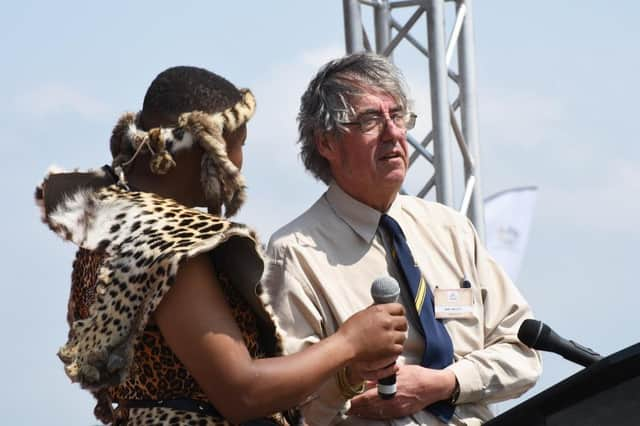Chichester historian offers Rorke’s Drift: By Those Who Were There


As Ian explains: “There are three authors listed – myself, Lee Stevenson, from Brighton, and Alan Baynham-Jones. Alan contributed to the early research for the book but sadly passed away in 2017; effectively Lee and I put this together, but we wanted to acknowledge Alan’s contribution.
“I’ve been pursuing my interest in the history of the Zulu kingdom, and in particular the British invasion of 1879, for more than forty years, and I’ve written about it many times. My most recent book, Zulu Rising, was a comprehensive study of the two defining battles of the war, Isandlwana and Rorke’s Drift. Both have been made into movies – Isandlwana in Zulu Dawn (1978) and, rather more famously, Rorke’s Drift in Zulu 1964. This one is about Rorke’s Drift, which is famous because around about 150 British soldiers defended a mission station against some 3.000 Zulu warriors for ten hours; it’s become one of the most famous battles in British military history, and was recognised by the award of 11 Victoria Crosses.
Advertisement
Hide AdAdvertisement
Hide Ad“I’ve known my co-author Lee for many years; Lee is a very good researcher with a particular interest in eyewitness accounts of Rorke’s Drift. Lee had compiled a book of them with Alan and published it privately some years ago; however in the meantime both he and I had found a lot more material that we wanted to explore. Sadly Alan is no longer with us, but Lee and I took that original idea and expanded it into the present volume. It largely consists of accounts by those who were there, both British participants and Zulus.
“It’s always a pleasure to work from primary services, and Lee’s ability to ferret them out – many first appeared in letters, interviews or obituaries in newspapers local to the participants – is remarkable. Some of these have only been published before in those newspapers, and long since forgotten about; but some of the participants achieved a degree of celebrity even at the time – Private Alfred Henry Hook, who was awarded the Victoria Cross, for example, became a member of the Corps of Commissionaires working at the British Museum and was in frequent contact with literary men and so was interviewed numerous times (we have nine accounts from him in the book) – and gave their stories more than once. As a historian it is interesting to see how those accounts vary. If they were written down over a number of years you often find that different things achieve more significance, others are pushed into the background, and sometimes memories are affected by other people’s accounts. They are all valid of course – it’s just an interesting insight into the effects of trauma and the passage of time, even when recalling great events like these. It was also interesting to see what happened to these men after the war; for the Zulus, of course, it meant defeat and the imposition of a colonial authority. Although one or two of the British soldiers enjoyed fame and success, most drifted off into obscurity, and many of them came to rather sad ends.”